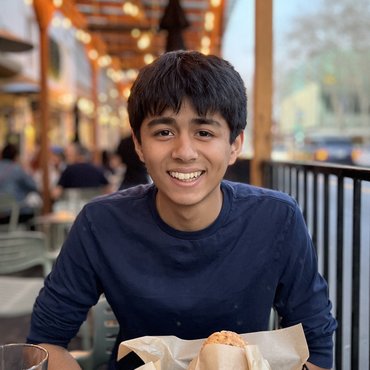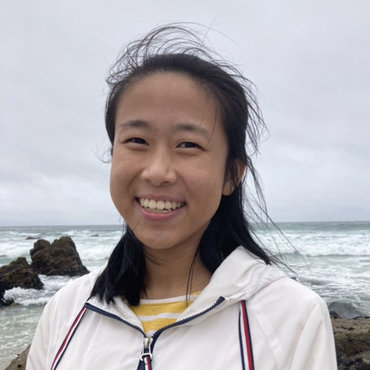
Zora Ilunga-Reed, '22
Finding on-the-job meaning
On a stormy July evening, I sat cross-legged on my sofa, listening to the words of Tyson Yunkaporta, an author and member of the Apalech Clan in north Queensland, Australia, as he addressed an international audience on Zoom. Flashes of lightning intermittently illuminated my living room, adding a dramatic effect to Yunkaporta's assertion—equal parts cutting and wise—that, in order to survive impending climate disaster, we must fundamentally dismantle industrialized, capitalist, modern-day society.
In Yunkaporta's view, the concepts of "progress" and “optimization” inherent to our current society and that we employ daily in our politics, our economics, even our own lives, are at odds with an ideal, sustainable existence on this planet.

As a remote intern for the Natural History Institute (NHI), I was a digital stagehand of sorts for webinars like these. When needed, I would mute and unmute speakers, screen share pre-recorded readings, and help manage the Q&A session. Additionally, I designed graphics to promote the events on the Institute's social media accounts and ensured that a recorded version of the webinar appeared on YouTube the next day.
In Yunkaporta's terms, I was contributing to this industrialized society. Armed with tech and basic marketing skills, I was using tags and buzzwords, creating branded content, and furthering NHI's mission. After listening to his talk (and questioning my role in the industrialized, media-driven society he described), I sent Yunkaporta an email, thanking him for his insight and relaying my thoughts on my job as one of the types that he saw as too focused on product and progress.
He responded kindly. "Always a bit nervous," he wrote, "as it's seldom what [people] want to hear. But more and more are thinking like this."
Until that point, I hadn't dedicated much philosophical inquiry or meaning-making to my NHI internship. I enjoyed the day-to-day work of building NHI's web presence and offering the public easy, remote access to its vast resources.
In addition to the webinars, I'd been working with a Prescott citizen scientist, Charlie DeMarco, on a four-part video series about plant galls. I helped him construct and edit the episodes, crafting them into a serialized narrative about the often overlooked, hidden world of galls—abnormal plant growths typically caused by the implantation of various insects’ eggs.
Additionally, at the onset of the pandemic, NHI had started Real Ground, an online blog featuring pieces written by authors, educators, academics, and artists that reflected on the intersection between the natural world and human life. I created social media graphics to promote the articles as they were submitted, sometimes reading some snippets from the posts themselves.
All of this work was exciting and interesting. I loved getting to know my supervisors on Zoom and FaceTime. During an otherwise isolating summer, I was extremely grateful for the digital community of NHI.

Yet, the idea verbalized by Yunkaporta—that my job, with its marketing, social media, and tech-based components, was essentially opposed to an ideal kind of human existence—gnawed at me. It popped into my head on my morning walks through Central Park and right before I closed my laptop for the night. Throughout the summer, I tried to reconcile the interest I had in my work with Yunkaporta’s troubling assertion.
Finally, in August, in anticipation of my departure from NHI, I was asked to consolidate data from the webinars we had held into general reports about the number of participants vs. registrants, the number of questions asked, and other data. I downloaded the files of all the question-and-answer sessions from the summer's webinars and, upon opening them, found an answer to my quandary.
In each webinar, participants had expressed their gratitude for the event, their interest in the topic, further inquiry into the issues discussed, and their excitement that there were people out there having conversations about the natural world. By making meaningful use of branding, technology, and social media, we'd been able to create the beginnings of a digital community. Together, we could work in our various fields on projects to create a world that was more sustainable, kinder, and more deeply connected to our shared planet.
In Yunkaporta's words, even though these topics are complicated and the opposing forces of industry and progress are powerful, "more and more are thinking like this."


